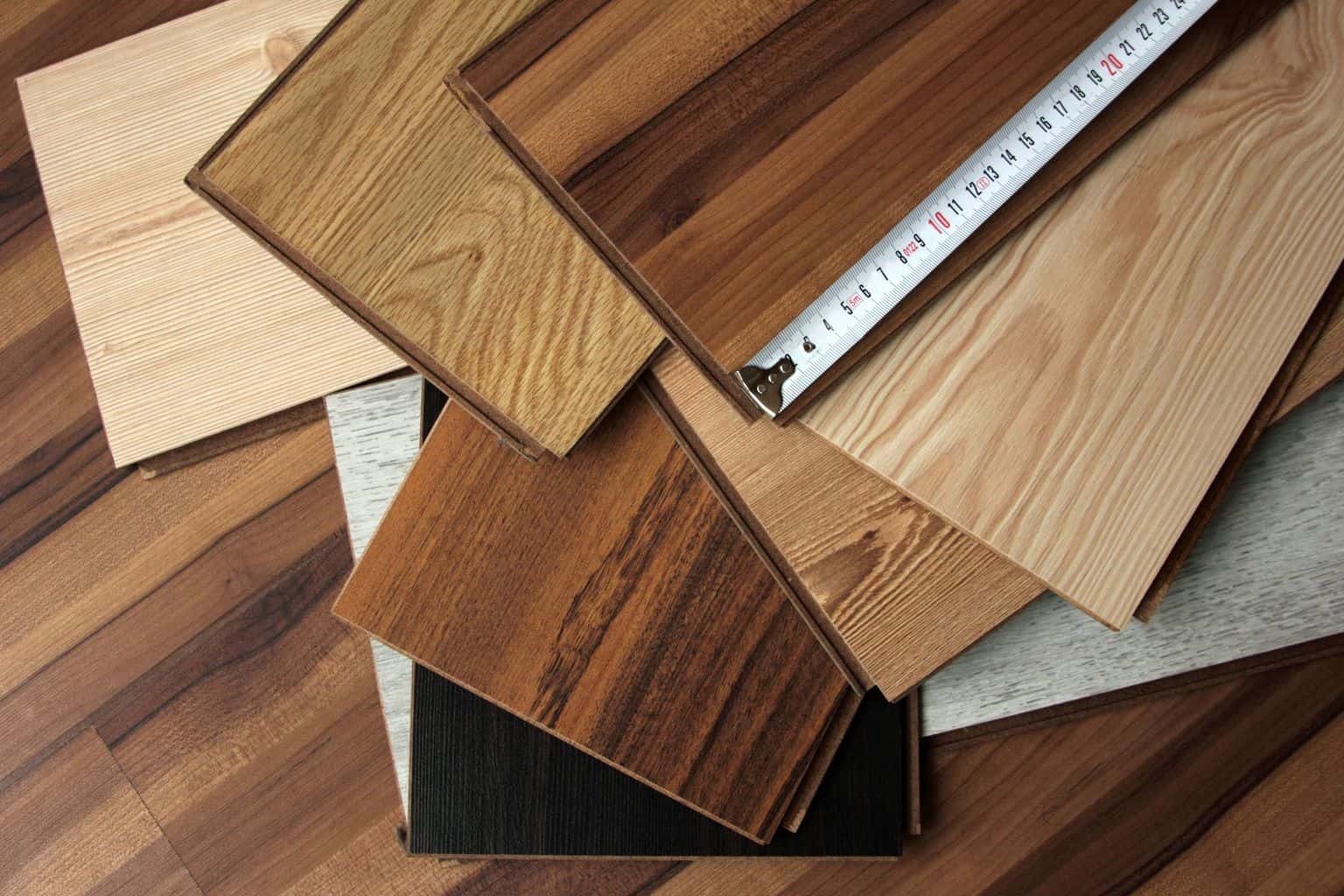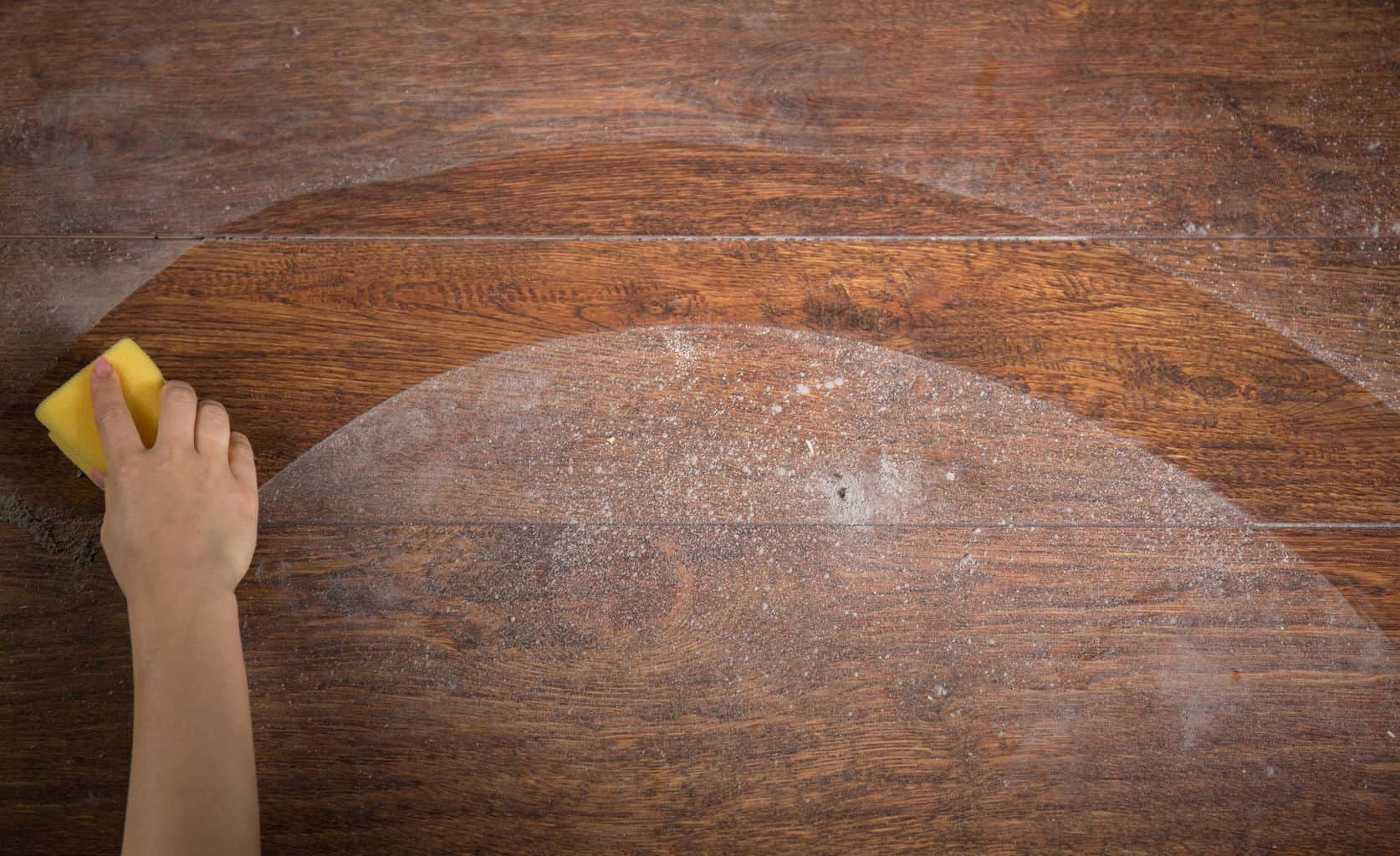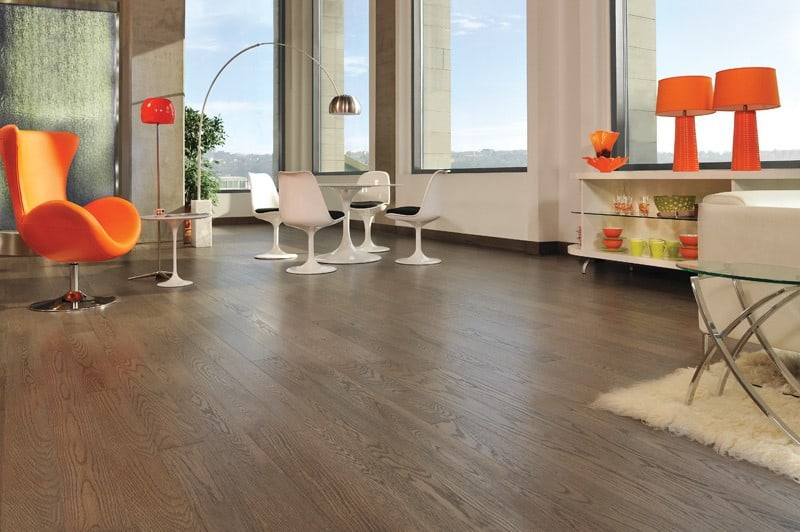In a world that is full of comparisons of different products and features, you will find that it can pay to compare items to get the best deal for your money.
By comparing apples to apples (or even apples to oranges), you can find the product that will best fit your needs and your budget.Comparison shopping sound like a lot of work?
Related article: Best Hardwood Flooring
Related article: Best Engineered Hardwood Flooring
The good news is that this process doesn’t even have to take you out of your home, if you wish, because most research can be done in the privacy of your home on your computer. Additionally, many flooring companies and installers, like Lumber Liquidators will send a consultant to your home to discuss options further.
Compare Prices: Engineered vs. Solid
Want to see a great comparison of prices from a hardwood (engineered and solid) with the guaranteed lowest prices? Take a look at Lumber Liquidators for a huge range of engineered and solid wood flooring.
Today, we are doing the initial work for you! We’re taking the guess work out of the engineered vs solid hardwood flooring debate. Check out the following comparison to help you make the right choice if you are considering either one of these flooring options for your home or a room in your home.

The Great Debate: Engineered and Solid Hardwood Floor
Engineered vs solid hardwood flooring can start many a lively debate among friends, home builders or remodelers and homeowners. There are pros and cons to both, but for the most part, nobody can tell the difference in the look once the floor is installed. Let price, availability, environment and lifestyle issues help guide your choice.
When considering engineered vs solid hardwood flooring, you first want to take a look at the individual features of each so that you have some basis to compare these two types of flooring. Here are the basics of each of these two types of wood flooring.

Pros of Engineered Hardwood Flooring
1. Versatility and Ease of Installation: Unlike solid hardwood flooring, engineered flooring can be installed in any room that you choose, even a basement, because it can withstand moisture due to the layers of material in the flooring that are designed to withstand buckling and rippling. Engineered flooring can also be installed over radiant floor heating, which can keep your feet warm during those cold winter months.
2. Durability and Maintenance: Caring for engineered hardwood flooring is similar to solid hardwoods, as the top layer, the “wear layer,” that will come into contact with the cleaning materials is essentially the same for both. With any hardwoods (engineered or solid), you will want to avoid abrasive or harsh chemicals like ammonia, and avoid using excessive soaking, as hardwood is susceptible to water damage. Never use a steam cleaner on your hardwood floors-engineered or solid!
3. Price: Engineered hardwood looks just as beautiful as solid hardwood flooring at a much better price that will fit almost anyone’s budget. Engineered hardwood floors also easy to install, saving on the cost of installation if you have the desire to do it yourself.
4. Environmentally Friendly: Engineered hardwood flooring is also more environmentally friendly than solid hardwood floors because the sub-surface layers are made from “junk” or “scrap” wood that would traditionally have been unusable, not the ornamental wood. This approach saves more forests because each tree of the hardwood, the oak, maple, bamboo, etc., can go further than it does with traditional solid wood floors.

Cons of Engineered Hardwood Flooring
Because the engineered hardwood floors are made by compressing a lower quality scrap wood for the first few layers of the planks and then using the traditional hardwood layer on the surface, you cannot refinish the floors very many times. Depending on the thickness of the top layer, you may be able to get up to three or four resurfacings from most engineered hardwood floors. So, while it’s not as long lasting as solid wood flooring, many engineered hardwood floors can be refinished. Despite only having a top layer of traditional hardwood, engineered wood flooring is a durable floor during its lifetime.
Solid Hardwood Flooring
Solid hardwood flooring comes in many different varieties of wood species, ranging from the traditional choices like maple or oak to more exotic woods, like bamboo. Solid wood floors are slightly more expensive than an engineered wood flooring, but if you are a diehard wood flooring enthusiast, then you may want to stick with a solid hardwood flooring. As the name implies, solid hardwood flooring planks are the traditional style of wood floors where the planks are made entirely from the hardwood, not from any kind of a wood composite or filler.

Pros of Hardwood Flooring
1. Added Value: When selling your home, if you have a home has solid hardwood floors, the listing price automatically jumps up. This is because the traditional choice of hardwood flooring has long been sought after in real estate and, with the rise in engineered hardwoods and laminates, it is becoming less and less common to find solid hardwoods in newer homes, increasing the demand and the value-add.
2. Potential For Refinishing: Because you can refinish a solid wood floor more times than you can an engineered wood floor, this flooring type lasts longer. This also helps balance some of the environmental problems associated with some wood floors, as you may be using a greater proportion of the hardwood in the initial design, but these solid planks will far outlast the “wear layer” of engineered woods.
3. Enduring and Long-Lasting: While solid hardwoods require a hefty amount of maintenance to keep in pristine condition and solid hardwood flooring can be damaged more easily than engineered hardwoods, there is no doubt that these floors can be refinished and repaired time and again. So while they may not be near the top of the list for durability, they still have a lasting staying power that means they can be revitalized time and again throughout the life of the floor.
4. Timeless Beauty: Truthfully, it is very difficult to tell the difference between a high quality engineered wood floor and a solid hardwood floor. However, there is a certain sentimentality and beauty in knowing that a solid hardwood floor will last through the lifetime of the home. If your home is a place you plan to live in for a long time, there is a certain appeal in knowing that the solid hardwood floors in your home today will be the same floors enjoyed by generations to come.

Cons of Hardwood Flooring
Solid hardwood can’t be installed (or isn’t recommended) in high moisture areas and should be avoided in rooms where water damage is likely, such as the bathroom, basements, or laundry room. Many professionals even recommend to avoid a solid hardwood floor in the kitchen. This is because the higher moisture content in the air — or excessive water on the floor, as from a leak — can cause the wood to ripple or buckle, which will destroy the flooring.
If you have children or pets, then you may want to consider the durability factor of solid hardwood flooring in your decision. Depending on the hardwood used, these floors can be damaged comparatively easily. All solid hardwoods scratch or dent easier than their engineered hardwood counterparts because the wood composite inside an engineered flooring plank is designed to withstand additional wear. However, the “wear layer” of an engineered hardwood floor is comparable to the solid wood counterparts and both will need to be properly maintained with a regular polyurethane or wax sealant in order for them to last.

It was once true that most solid hardwood flooring needed to be professionally installed. If you are a do-it-yourselfer, then this was traditionally a big negative for solid hardwood flooring. However, these days, most hardwood flooring is designed with tongue and groove style planks that can be installed by anyone with a level subfloor. Check out this video to see how to install the tongue-and-grove style planks typical of modern solid or engineered hardwood flooring.
And the Winner of the Engineered vs. Solid Hardwood Flooring Debate Is...
…entirely a matter of preference!
Unfortunately, I can’t tell you which of these two flooring options is the right choice for you. Deciding between engineered vs solid hardwood flooring is a decision that should be made carefully. In some cases, your budget will be the determining factor, but if at all possible, it is better to let other considerations make your decision for you. Consider the rooms that you will be installing the flooring in, the people who will be walking on and enjoying the floors, and what your dream flooring is to help you determine the winner between engineered vs. solid hardwood flooring in your particular situation. I also strongly recommend that you reach out to several different manufacturers and suppliers to check out their products and do some comparison shopping between all of the options.
Compare Prices: Engineered vs. Solid
Want to see a great comparison of prices from a hardwood (engineered and solid) with the guaranteed lowest prices? Take a look at Lumber Liquidators for a huge range of engineered and solid wood flooring.

Hi Shauna,
If you staple the floating floor then it can’t expand and contract with the differing temperatures/humidity. I guess that it wouldn’t be a floating floor anymore………..
Anyhoo, plywood is better than particle board, even better is a subfloor on top of the particle board.
The call is yours, I don’t know what you’re budget is like for this project and you need to do what you think you can do.
A floating floor can be refinished, you just have to make sure not to go past the depth of the hardwood layer. ;~)
We have a little baby (6 mos.) and a little dog. We found an engineered floor that we really like…actually we liked the solid initially but it’s twice the price. We’re probably only going to live here for another 5 years or so, but need to re-do some of our floors because the old carpeting is nasty.
Do you think the engineered floor will be ok with a little baby and a little dog (10 lbs) for 4-5 years?
Hi Lou,
I think the engineered hardwood floor would be a good choice. The biggest thing is to make sure to keep your dog’s toenails trimmed. At least it’s a small dog, so it shouldn’t have as big as an impact on your flooring as say, a german shepherd.
Is it true that for solid hardwood installation you have to move out of your house due to fumes and sanding?
Hi Jen,
No, not necessarily. If you’re very sensitive to fumes and some dust, then you might want to consider staying someplace else. Plastic sheets can always be put over doorways to keep sanding dust contained as well as fumes (so long as the room is well ventilated of course!). Many products are lower in VOC’s than they used to be, some are no VOC. Costumers want low or no VOC products because of health and environmental concerns. Most manufacturers have listened and have gone ‘green’.
I am leaning toward solid wood floors. I understand when selling a home this maybe a good investment. Which has less indentation form heavy furniture such as sofa or piano, engineered wood or solid wood?
As you know, different wood species have differing degrees of hardness. You might want to read this article that explains the Janka rating system. This Wiki page has the janka scale list of woods and their ratings.
Your article engineered vs solid helped BUT thinking about doing wood floors through out the house except kitchen (has laminate) bathrms have vinyl – should it be the same wood type/pattern everywhere, down stairs in family,living and dining room, upstairs bonus room, bedrooms, and of course the stairs. Currently have wall to wall carpet.
Does anyone know if you can leave hardwood floring in cold temps during the winter month with no heat on in the home?? we were told that it might buckle? is this true?
thanks for any input , Dick R
Hi Wanda,
Nope, there’s no real reason to have the same type of wood throughout the house. You can have one type upstairs, another downstairs or you can even have different types in each room – the choice is entirely up to you.
Hi Dick,
Yes, it can buckle. It doesn’t mean that it will for certain, but it might.
Hi,
I have an engineered wood floor right now in my kitchen. Where the graining is in the wood, the finish has pitted. You can now see down to the bare wood. The dealer has agreeded to replace it and give me money towards the cost of installing too. He is not sure why this happened. He is telling me to go with engineered again, just get on with less graining such as a maple one. I have 2 dogs, they are both under 100 pounds and don’t spend a whole lot of time in the kitchen. (The dealer is well aware of the dogs too.) What should I do? I have a feeling he’s pushing for engineered due to HIS cost. The floor originally only lasted 1 year and I really don’t want to go through this again. Let me know, Thanks
Hi Kelly,
I would recommend using unfinished engineered wood flooring. This way, it can be stained whatever color you want and can then be finished with a product such as Diamond Coat Varathane Polyurethane or BioShield. Both have good finishing products, BioShield is more environmentally friendly.
I’m trying to decide between solid and engineered flooring. I live in the deep south – lots of moisture and slab foundations that shift regularly. I would like to cover 1300 sq ft, including kitchen,laundry room, DR and den in the same floor. What do you suggest?
Wow, haven’t run into having to consider flooring for slab foundations that shift regularly. My first concern would be with moisture content in the slab itself. Are there cracks? Any moisture issues should be addressed first before you even think about flooring. Moisture in the slab itself is going to be a big no-no no matter if you choose engineered or solid hardwood. Moisture and wood don’t mix. As to which would be better on a slab that’s most likely to shift from time to time, I would think engineered would take it better, especially if floated rather than glued.
hi–I am trying to decide btwn hardwood floors and engineered floors, because my subfloor is a weak particle board. Should I find someone to lay down a plywood over my existing subfloor and then have hardwood or just go with the glued down engineered. Long down the road, I will be selling my house so I am also concerned with resale value. Any suggestions?
Hi. We are remodeling and replacing the flooring in the kitchen, Dining Room and Bath. These are all very high traffic (small house with three kids) and we are concidering engineered wood in at least the Kitchen and DR. Also, my Dad uses a scooter which will occasionally be used in these rooms.(Pebbles may come in on the wheels). Do you think that this flooring would work or does anyone have suggestions?? I know that tile is durable but I can’t take standing on that hard of surface. Maybe if I used an extra finishing product – would that help minimize the scratches? Thanks for any help.
Betsy
we are trying to decide between solid and engineered Brazilian Cherry. We have 3 large dogs (75-120 lbs) and a 6 month old. We want to put it in the kitchen, dining area and living room as it is all 1 big space. Any suggestions?
Hi Lisa,
Personally, I am a firm believer in hardwood floors when you’re looking ‘down the road’. You can stain them any color you like, finish them with different types of products and they can be refinished many, many times – unlike engineered floors which can only be successfully refinished a few times, cannot have your choice of sealers/finishes applied to them because of the factory finishes and just won’t last ‘forever’.
You might be better off ripping up the old plywood and putting down new – height is going to be a big factor here. If your old subfloor is saggy, you’ll need to address that issue too – many people (pros included) will use leveling agents or roofing felt to address the issue before putting down a new layer. You’re floor will turn out better if the subflooring is level. ;~)
Hi Betsy and Amy,
Yes, some extra coats of polyurethane would help with the traffic, but I think that your floor is still going show examples of distress (life!) considering what it will have to go through. I have heard many complaints especially about engineered flooring – mainly with the finishes themselves – you also cannot put extra coats of anything on them. You can find unfinished engineered flooring, which gives you the option to stain the flooring if you’d like and gives you the option of controlling what you use to finish the flooring.
Amy – be sure to keep those doggie toenail trimmed so they don’t scratch up your new flooring! ;~)